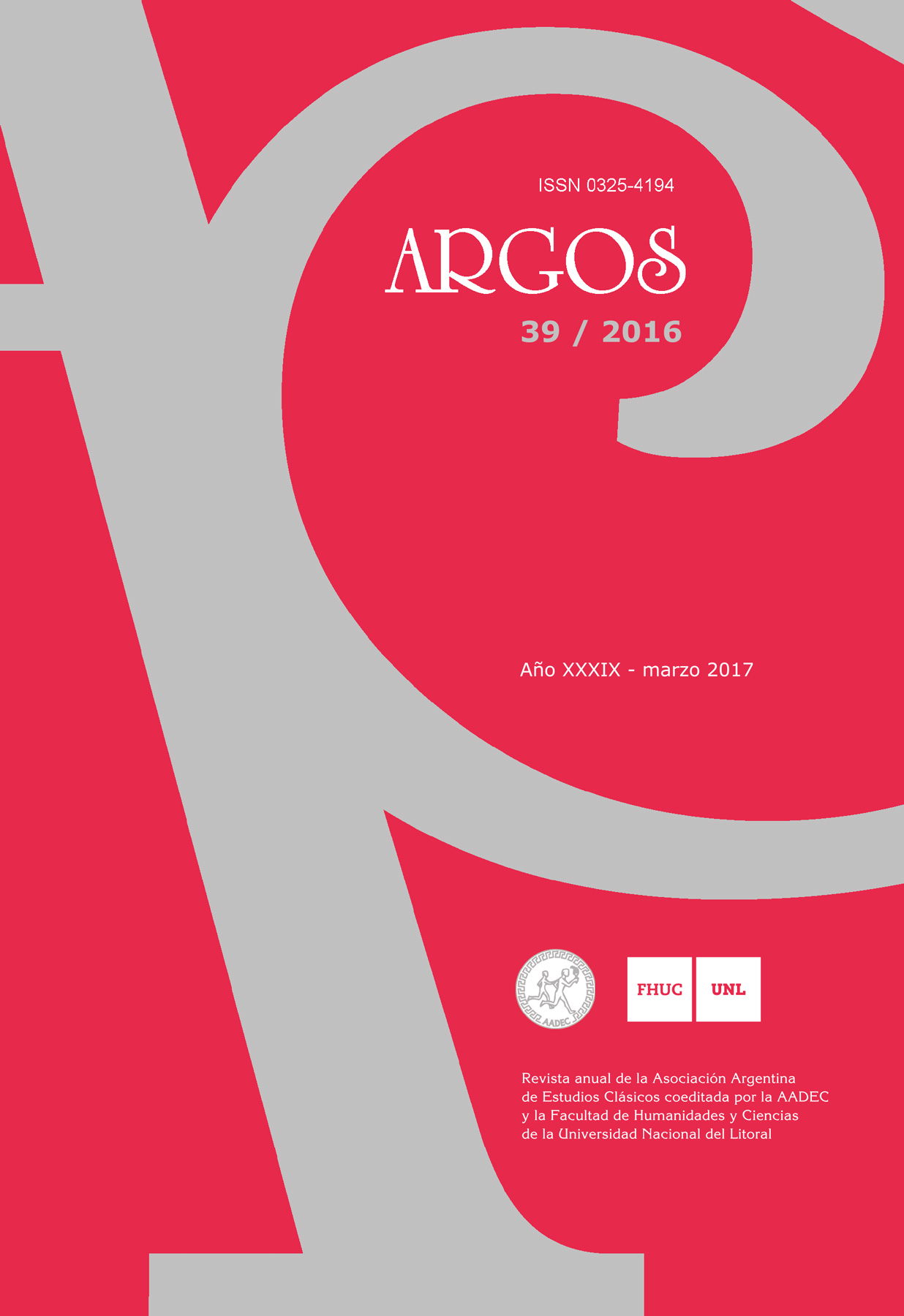The ‘lepiditas’ and its history: Periplectomenus in the Miles gloriosus and his influence from Terence to Apuleius
DOI:
https://doi.org/10.14409/argos.v2i39.9218Keywords:
lepidusAbstract
The article aims to investigate the use of the adjective lepidus in the Miles gloriosus, beginning with the analysis of the senex lepidus Periplectomenus and his aristia in 3.1. Two meanings of the word will be pointed out: on the one hand, lepidus ist the key-word that underlines the way by which the comic effect is reached in the play; on the other, it represents a way of life –and, indirectly, a method of education– that is based on the ‘lepiditas’. After Plautus, this model will be actively reused in the republican age. In the imperial age, instead, the functions and meanings of lepidus will be strictly reduced and the word will be employed just as marker to introduce funny tales.



